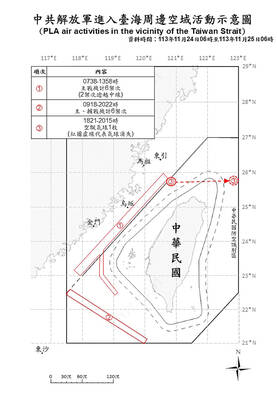Pakistani Usman Iqbal, 33, is one of the youngest faculty members at Taipei Medical University, where he teaches as an assistant professor, researches health informatics and manages several national and international health IT projects.
He has witnessed many changes in the decade he has lived in Taiwan, but as a Muslim, he pays particular attention to the treatment of Muslims, Iqbal said.
“When I first got here, it was hard to tell if a food product contained pork or not, which made every meal full of surprises,” he said.
Thanks to the government’s push for halal certification — which identifies operators that serve food in compliance with Islamic dietary law — dining has become far easier, he said.
Today, halal-certified food products are clearly labeled and can be found at major supermarkets, he said.
Two new mosques have also been built since he arrived, making it easier for Muslims to worship, Iqbal added.
He said he has found that authorities show great respect for Muslims, such as when police put traffic controls in place during mosque services.
“I think Taiwan is very friendly [toward Muslims]; it is pretty good,” he said.
Iqbal said he has noticed more visitors from Muslim countries, an observation that seems to be supported by official reports.
In the 2018 Report on International Religious Freedom released earlier this month by the US Department of State, Taiwan was recognized for making “significant” progress in improving rights for Muslims.
The report cited the Taipei-based Chinese-Muslim Association as saying: “Authorities were making significant progress in improving rights for Muslims,” such as increasing the number of restaurants and hotels that cater to halal requirements, and establishing prayer rooms.
Taiwan’s friendliness toward Muslims is one of the main reasons why Iqbal applied for a Plum Blossom Card, which grants permanent residency to foreigners in recognition of their special contributions to Taiwan as part of the government’s efforts to retain top international talent.
The program is aimed at uniquely qualified, skilled professionals. For those who receive the card, there are no minimum residency or income requirements, and no filing fees, unlike other permanent residency programs.
Highly qualified foreigners who have made contributions to Taiwan or those who have invested at least US$200,000 in the nation are eligible to apply.
Currently, 90 people have Plum Blossom Cards, National Immigration Agency statistics showed.
After learning of the program and that his expertise in the use of artificial intelligence in medicine meant he could qualify, Iqbal applied in July 2017 and received the card in April, becoming the first Pakistani to do so.
Iqbal said that Taiwan’s strong technological infrastructure allows him to continue to learn from the best in his field and conduct research.

A decision to describe a Chinese Ministry of Foreign Affairs statement on Singapore’s Taiwan policy as “erroneous” was made because the city-state has its own “one China policy” and has not followed Beijing’s “one China principle,” Deputy Minister of Foreign Affairs Tien Chung-kwang (田中光) said yesterday. It has been a longstanding practice for the People’s Republic of China (PRC) to speak on other countries’ behalf concerning Taiwan, Tien said. The latest example was a statement issued by the PRC after a meeting between Singaporean Prime Minister Lawrence Wong (黃循財) and Chinese President Xi Jinping (習近平) on the sidelines of the APEC summit

Taiwan’s passport ranked 34th in the world, with access to 141 visa-free destinations, according to the latest update to the Henley Passport Index released today. The index put together by Henley & Partners ranks 199 passports globally based on the number of destinations holders can access without a visa out of 227, and is updated monthly. The 141 visa-free destinations for Taiwanese passport holders are a slight decrease from last year, when holders had access to 145 destinations. Botswana and Columbia are among the countries that have recently ended visa-free status for Taiwanese after “bowing to pressure from the Chinese government,” the Ministry

HEALTHCARE: Following a 2022 Constitutional Court ruling, Taiwanese traveling overseas for six months would no longer be able to suspend their insurance Measures allowing people to suspend National Health Insurance (NHI) services if they plan to leave the country for six months would be abolished starting Dec. 23, NHIA Director-General Shih Chung-liang (石崇良) said yesterday. The decision followed the Constitutional Court’s ruling in 2022 that the regulation was unconstitutional and that it would invalidate the regulation automatically unless the NHIA amended it to conform with the Constitution. The agency would amend the regulations to remove the articles and sections that allow the suspension of NHI services, and also introduce provisional clauses for those who suspended their NHI services before Dec. 23, Shih said. According to

‘GRAY ZONE’ TACTICS: China continues to build up its military capacity while regularly deploying jets and warships around Taiwan, with the latest balloon spotted on Sunday The US is drawing up contingency plans for military deployments in Japan and the Philippines in case of a Taiwan emergency, Japan’s Kyodo news agency reported. They would be incorporated in a first joint operation plan to be formulated in December, Kyodo reported late on Sunday, citing sources familiar with Japan-US relations. A US Marine Corps regiment that possesses High Mobility Artillery Rocket Systems — a light multiple rocket launcher — would be deployed along the Nansei Island chain stretching from Kyushu to Yonaguni near Taiwan, Kyodo said. According to US military guidelines for dispatching marines in small formations to several locations,